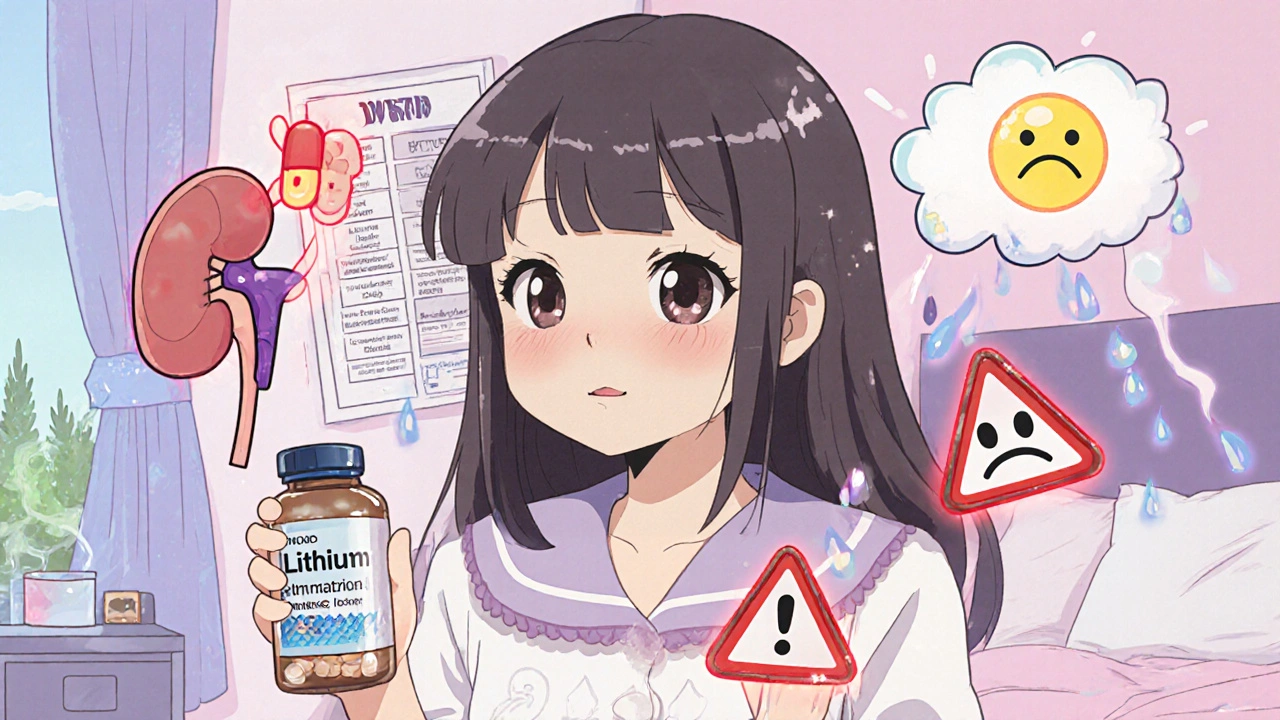Drug Interactions with Bipolar Medications: What You Need to Know
When you're taking medication for bipolar disorder, a mental health condition marked by extreme mood swings between mania and depression. Also known as manic depression, it often requires long-term treatment with mood stabilizers, antipsychotics, or antidepressants. But here’s the thing: many of these drugs don’t play well with others. A simple over-the-counter cold medicine, an antibiotic, or even a herbal supplement can throw your whole treatment off track—sometimes dangerously so.
Take lithium, a common mood stabilizer used to prevent manic and depressive episodes. It’s effective, but its margin for error is thin. If you start taking a diuretic like hydrochlorothiazide—often prescribed for high blood pressure—your body holds onto more lithium. That can lead to toxicity: tremors, confusion, even seizures. Same goes for NSAIDs like ibuprofen. They reduce kidney clearance of lithium, pushing levels up without you realizing it. And if you’re on an SSRI like fluoxetine for depression? That combo can spike serotonin levels too high, triggering serotonin syndrome—a medical emergency with high fever, rapid heartbeat, and muscle rigidity.
Antipsychotics, such as quetiapine or olanzapine, are often used to control severe mood episodes, but they come with their own interaction risks. Mixing them with certain antifungals like ketoconazole or voriconazole can slow how fast your liver breaks them down. That means higher drug levels in your blood, increasing drowsiness, dizziness, or even heart rhythm problems. Even something as simple as grapefruit juice can interfere. And don’t forget about antidepressants, especially when used alone without a mood stabilizer. In bipolar patients, they can trigger mania or rapid cycling between moods. That’s why doctors rarely prescribe them without pairing them with something like lamotrigine or valproate.
You might think you’re being careful—only taking what’s prescribed—but many people don’t realize how many substances can interfere. St. John’s wort, a popular herbal remedy for low mood, can make lithium and antipsychotics less effective. Alcohol? It doesn’t just worsen depression—it can amplify sedation from antipsychotics and make you more prone to falls or accidents. Even caffeine in large amounts can disrupt sleep enough to trigger mania in someone already on the edge.
The bottom line? If you have bipolar disorder, your medication list isn’t just about what your psychiatrist gave you. It’s about everything else you touch—supplements, prescriptions, even what you eat or drink. That’s why keeping a full list of everything you take—and sharing it with every doctor you see—isn’t optional. It’s lifesaving. The posts below cover real cases: how people got caught off guard by drug interactions, what went wrong, and how they got back on track. You’ll find practical guides on lithium safety, how to spot serotonin syndrome early, why some antidepressants are risky in bipolar, and how to talk to your pharmacist about hidden risks. This isn’t theory. These are the mistakes people make, and how to avoid them.

 Nov, 12 2025
Nov, 12 2025